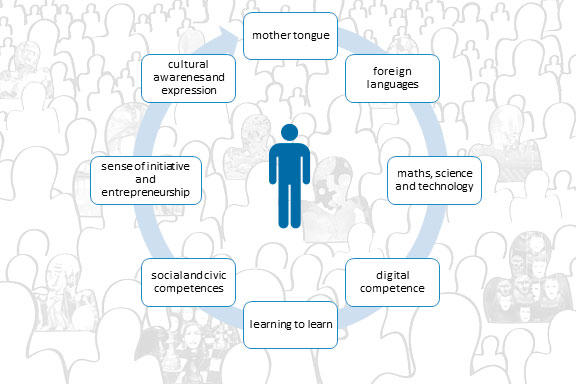The Reference Framework is a reference tool for policy makers, education and training providers, employers and learners themselves that can be used to support educational reforms in the European Member States.
The Reference Framework defines competencies as a combination of knowledge, skills and attitudes and identifies those critical (i.e. key) competencies that EU citizens require for their personal fulfilment, social inclusion, active citizenship and employability in a knowledge based society.
Member States’ initial education and training systems should support the development of these competences for all young people, and provide all adults with opportunities to maintain and develop these skills and competences throughout life.
Given the pluri-cultural nature of Europe, the Reference Framework leaves Member States to further interpret concepts stated in the Reference Framework such as ‘competence’, ‘key competences’ or ‘transversal skills’ according to their particular educational systems and specific socio-cultural contexts.
It is worth stating that the development of Reference Framework in the EU Member States is not necessarily linked to qualifications. However, these key competencies are included in an inherent manner in the European Qualifications Framework (EQF) that describes qualifications levels through learning outcomes.
The Reference Framework considers all the key competencies equally important, because each of them can contribute to a successful life in a knowledge society. Many of the competencies overlap and interlock, aspects essential to one competence will support the development of another. There are a number of themes that are applied throughout the Reference Framework which play a role in all eight key competencies. These are: critical thinking, creativity, initiative, problem solving, risk assessment, decision taking, and constructive management of feelings. They are also known as ‘transversal skills’ and they are closely related to the recommendations set by other organisations such as the OECD.
The key competences state in the Reference Framework are:
- communication in the mother tongue;
- communication in foreign languages;
- basic competences in maths, science and technology;
- digital competence;
- learning to learn;
- social and civic competence;
- sense of initiative entrepreneurship;
- cultural awareness and expression.


